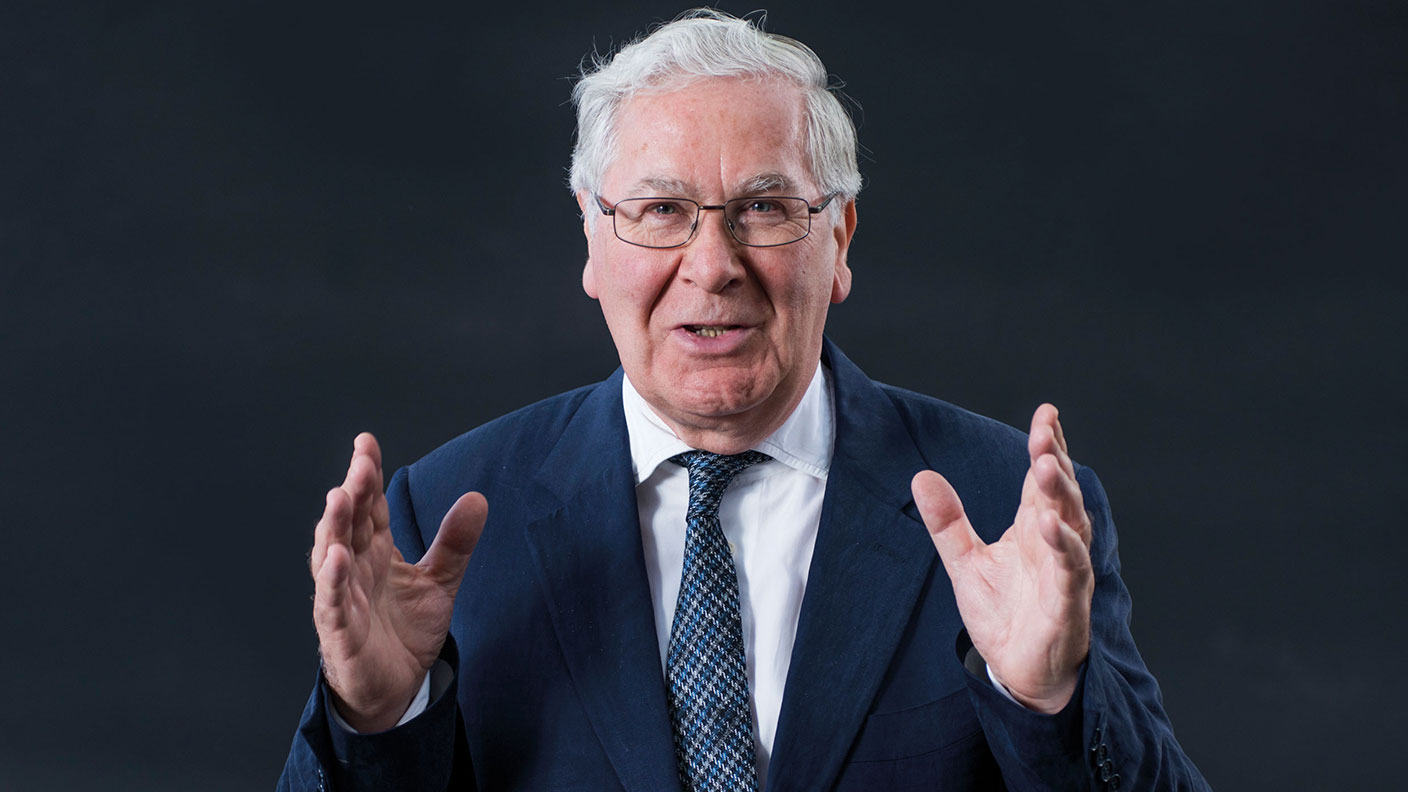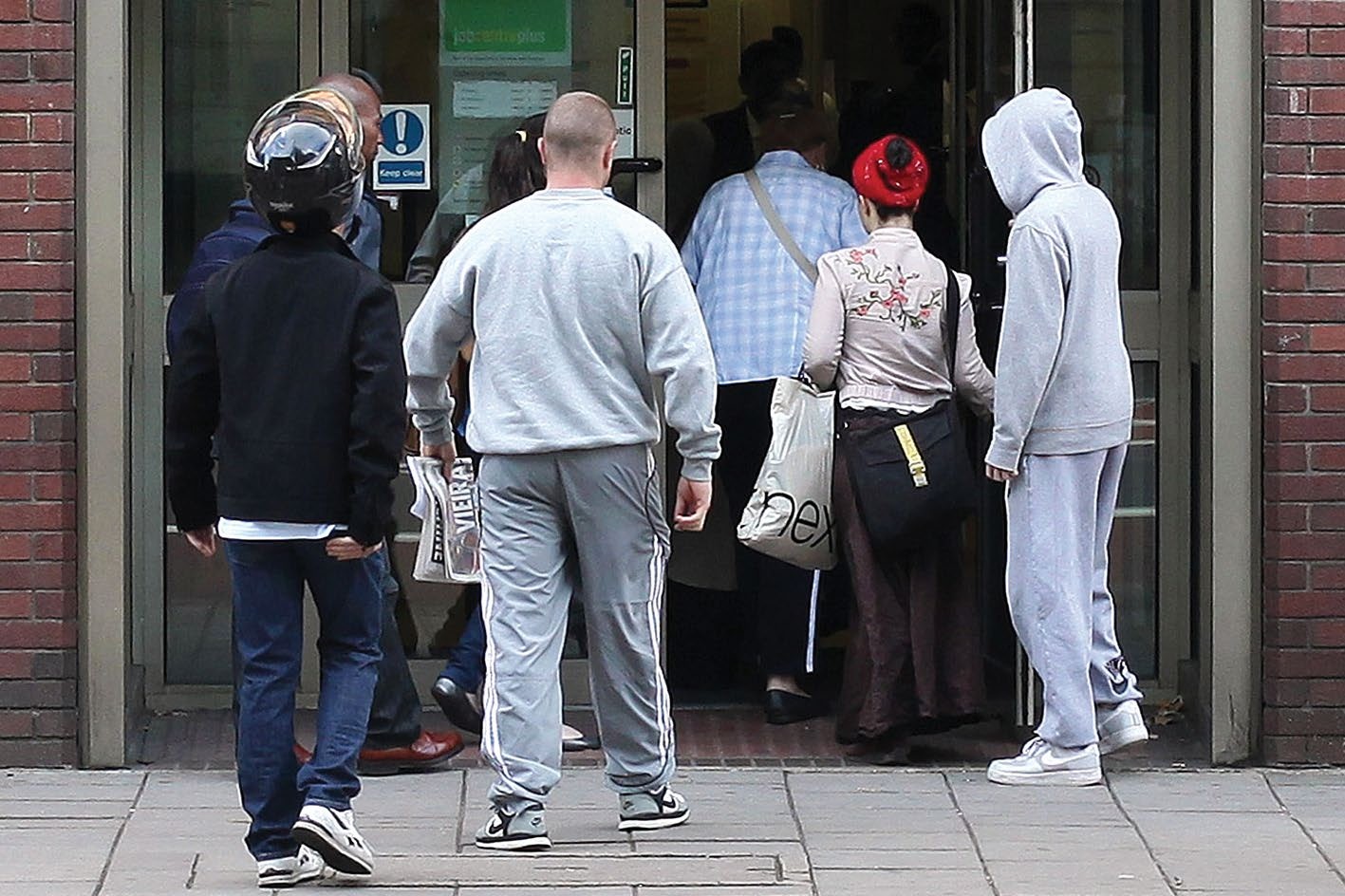Just how much of a threat is rising inflation?
Investors are getting spooked by the prospect of rising prices. But how much of a threat is that really? Simon Wilson reports

Get the latest financial news, insights and expert analysis from our award-winning MoneyWeek team, to help you understand what really matters when it comes to your finances.
You are now subscribed
Your newsletter sign-up was successful
Want to add more newsletters?
What’s happened?
The spectre of inflation has risen from the grave and investors are getting spooked. In the UK, the rate of consumer price inflation rose to 2.1% in May, up from 1.5% the previous month and continuing a surge from a low of 0.3% last November. That’s a big rise in just six months. In the US it’s even higher – 5% in May compared with an average between 2010 and 2020 of 1.7%. In the eurozone, it’s 2%, but the Bundesbank predicts that in Germany it will be 4% by later this year; politicians have warned of a “social explosion” as a result.
Isn’t this just a post-Covid-19 bounceback?
Only partly, argues Patrick Hosking in The Times. The “economic slack” argument wheeled out to explain why price and wage pressures won’t intensify much further and will then retreat is “starting to sound tired”. It downplays the fact that employers in industries from construction and retail to hospitality and transport are struggling to fill vacancies. Around the world, a dearth of staff in some sectors is forcing bosses to offer an “assortment of baits, bonuses and benefits that would have seemed preposterous just months ago”, says Pilita Clark in the Financial Times. In Australia, Queensland is offering £820 signing on bonuses to lure workers into the tourism sector. In the US, Amazon is offering $1,500 sign-on bonuses. In London, a restaurant is offering staff £2,000 if they successfully recommend a new hire. More broadly, a record four million Americans quit their jobs in April – the latest sign that a tight labour market could be here to stay, pushing up wages.
Are we heading for a wage-price spiral?
“In my view this is the most dangerous moment for monetary policy since inflation-targeting was first introduced into the UK in 1992 after the European Exchange Rate Mechanism debacle,” wrote the Bank of England’s departing chief economist Andy Haldane last month. “If wages and prices begin a game of leapfrog, we will get the sort of wage-price spiral familiar from the 1970s and 1980s.” But as Haldane told MoneyWeek in last week’s issue, he believes such a spiral is less likely in an age where the Bank of England is independent – and is therefore free to court unpopularity by tightening monetary policy. On balance, a wage-price spiral is unlikely, says Ian Stewart, chief economist at Deloitte. “Unlikely – but not wholly impossible.”
Try 6 free issues of MoneyWeek today
Get unparalleled financial insight, analysis and expert opinion you can profit from.

Sign up to Money Morning
Don't miss the latest investment and personal finances news, market analysis, plus money-saving tips with our free twice-daily newsletter
Don't miss the latest investment and personal finances news, market analysis, plus money-saving tips with our free twice-daily newsletter
Is an inflation crisis on the cards?
Mervyn King, a former governor of the Bank of England, says politicians are complacent about the risks. For the first time since the 1980s, two factors “make inflation a serious risk”, he says: “excessive monetary and fiscal stimulus, and weak political resistance to the threat”. The most explosive warning yet has come from Nouriel Roubini, the “Dr Doom” economist who predicted the 2007-2008 financial crisis. In a sobering piece for Project Syndicate, Roubini warned that the global economy is heading for the “mother of all stagflationary debt crises”. Years of ultra-loose fiscal and monetary policies have pumped up asset and credit bubbles that will inevitably burst. But this time it will be worse than either the 1970s (because debt levels are higher) or the 2007-2010 period (because the context will be inflationary rather than deflationary). Worse, policymakers will have run out of firepower, and governments will be semi-insolvent and therefore “unable to bail out banks, corporations and households”. This slow train wreck is approaching, says Roubini; “the question is not if but when”.
Why does inflation matter?
The idea that a little inflation is nothing to worry about is dangerous, says Brian Griffiths (the academic and Thatcher-era politician Lord Griffiths) in The Article. Once inflation becomes embedded the “whole population becomes poorer, unemployment rises, those in debt are rewarded and those with savings are penalised. Inflation invariably creates division, conflict and an erosion of trust in society, with everyone blaming everyone else for the chaos.” It’s hard for today’s generation of policy-makers and leaders to understand this: anyone under 60 has little memory of the high inflation of the 1970s. A return to 20%+ inflation is unlikely, says Griffiths, but so is a return to a stable 2%.
Why’s that?
First, the “2% genie is out of the bottle”. Inflation expectations are no longer anchored at 2%, and everyone thinks inflation will rise – a fact which will in itself tend to fuel price rises. Second, the pandemic (like World War II) has changed what citizens expect from their governments. In the US, Biden’s $6trn splurge will help fuel inflation, as will the “levelling-up” agenda of Boris Johnson, a “big spending Tory in the tradition of Macmillan and Heath”. Third, central banks have been tasked with multiple objectives rather than a sole, clear goal of targeting inflation. The Bank of England, for example, is no longer just tasked with overseeing price stability, but also monetary stability, the banking sector, and helping the government hit sustainability and net-zero carbon targets.
Why does that matter?
It muddies the waters in terms of independent policy-making and makes it harder to target inflation effectively. There’s also a fourth factor: a real potential for supply-side constraints – including shortages of migrant labour – to “reduce real output growth in the face of an extraordinary monetary and fiscal stimulus, such that demand exceeds supply” and prices soar. The danger now is that policy-makers write off higher inflation as part of a temporary post-Covid-19 bounce, and fail to see the factors that point to the longer-term problem. The longer they delay tightening, the more inflation will rise – and the bigger the risk of kick-starting that wage-price spiral. Then we really will be in trouble.
Get the latest financial news, insights and expert analysis from our award-winning MoneyWeek team, to help you understand what really matters when it comes to your finances.
-
 Financial education: how to teach children about money
Financial education: how to teach children about moneyFinancial education was added to the national curriculum more than a decade ago, but it doesn’t seem to have done much good. It’s time to take back control
-
 Investing in Taiwan: profit from the rise of Asia’s Silicon Valley
Investing in Taiwan: profit from the rise of Asia’s Silicon ValleyTaiwan has become a technology manufacturing powerhouse. Smart investors should buy in now, says Matthew Partridge
-
 The scourge of youth unemployment in Britain
The scourge of youth unemployment in BritainYouth unemployment in Britain is the worst it’s been for more than a decade. Something dramatic seems to have changed in the labour markets. What is it?
-
 In defence of GDP, the much-maligned measure of growth
In defence of GDP, the much-maligned measure of growthGDP doesn’t measure what we should care about, say critics. Is that true?
-
 Reach for the stars to boost Britain's space industry
Reach for the stars to boost Britain's space industryopinion We can’t afford to neglect Britain's space industry. Unfortunately, the government is taking completely the wrong approach, says Matthew Lynn
-
 "Botched" Brexit: should Britain rejoin the EU?
"Botched" Brexit: should Britain rejoin the EU?Brexit did not go perfectly nor disastrously. It’s not worth continuing the fight over the issue, says Julian Jessop
-
 'AI is the real deal – it will change our world in more ways than we can imagine'
'AI is the real deal – it will change our world in more ways than we can imagine'Interview Rob Arnott of Research Affiliates talks to Andrew Van Sickle about the AI bubble, the impact of tariffs on inflation and the outlook for gold and China
-
 Tony Blair's terrible legacy sees Britain still suffering
Tony Blair's terrible legacy sees Britain still sufferingOpinion Max King highlights ten ways in which Tony Blair's government sowed the seeds of Britain’s subsequent poor performance and many of its current problems
-
 How a dovish Federal Reserve could affect you
How a dovish Federal Reserve could affect youTrump’s pick for the US Federal Reserve is not so much of a yes-man as his rival, but interest rates will still come down quickly, says Cris Sholto Heaton
-
 New Federal Reserve chair Kevin Warsh has his work cut out
New Federal Reserve chair Kevin Warsh has his work cut outOpinion Kevin Warsh must make it clear that he, not Trump, is in charge at the Fed. If he doesn't, the US dollar and Treasury bills sell-off will start all over again